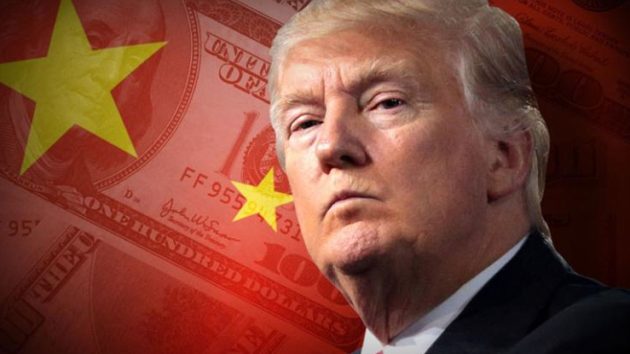Is There Emerging Support For Trump Tariff Policies Toward China?
I was on an ABC panel last night debating President Trump’s tariff policies with a Democratic politician and a left-of-center university economist when something very interesting emerged: They both agreed that China is a bad player in trade and that it should be forced into more fair trade with the U.S.
All three of us agreed on a major Trump policy. That left the moderator a bit bewildered, and for good reason. It’s a pretty amazing development considering getting agreement on the sky being blue is nearly impossible in today’s environment. But just as surprising and largely uncovered, it is supported by a substantial majority of Americans, if you move past the media spin.
An April poll by Luntz Global Partners found that 62 percent of Americans agree with Trump’s attempt to use tariffs, believing that the risks are worth it to get better trade deals. That includes more than one-third of Democrats and a huge majority of Republicans.
“Voters don’t buy the ‘fear-factor’ that jobs are at-risk, instead agreeing that Trump’s tariffs are both ‘necessary,’ and in the words of Senator Sherrod Brown, ‘long overdue,’” said Alyssa Salvo, president of Luntz Global Partners. Brown is a Democrat from Ohio — a state that stands to gain a lot from better trade policies with China.
Showing a more shrewd understanding of tariffs than a lot in the media, the Luntz poll found that 56 percent of Americans expected that the tariffs would have some negative effects — because of course they will, short-term, at least on consumers on certain products.
The media insists that Trump’s tariffs are launching a terrible and dangerous trade war and wonder why Republicans no longer support free trade. As I mentioned at that point on the ABC panel, we do not have free trade with China and have not for decades. Too many presidents paid minimal lip service to the Chinese tariffing cars at 25 percent among most other products, blackmailing American companies to give up trade secrets to enter the Chinese market and just flat out stealing American technology.
They have not been a trade partner, but a trade enemy.
Trump has rightly identified this problem that a broad cross-section of Americans also identify, and is trying to fix it, of which Americans also largely approve. President Obama didn’t really give a fig about American industry; his attention was elsewhere focused on destructive identity politics and socialized health care.
What is surprising is that perhaps a growing number of Democrats (not in Washington, that’s a lost cause) are coming to see the problem with China. Only forceful actions will change it. Talk alone will not.
Tariffs are neither good or evil. They just are. If they are used to protect certain industries or companies in perpetuity, then they are bad. China does that as well as several European Union countries and Canada — just on much smaller scales than China. But if tariffs are used as a short-term leveraging tool — particularly when done by the bigger importing country — then they are good.
Of course, the U.S. can and likely will win any trade skirmish with China, or Europe, for that matter. Remember, the U.S. is not just the biggest economy, its the biggest shopper — by far. That means in every trade war with countries with which we have a trade deficit, we have the upper hand in a tariff war. The bigger the deficit, the bigger the upper hand.
The U.S. has the largest trade deficit with China, by far, and China cannot come close to matching us tariff for tariff because they already have high tariffs that have kept a lot of U.S. companies out. Which means, their companies and economies get hurt much more than ours, because they have largely been either gaming the system or downright cheating.
This emerging reality has one more meaning: It’s good politics. Tariffs on steel, cars can help heavy manufacturing states, particularly in those that Trump swung from the Democrat column, such as Pennsylvania, Ohio and Michigan. There may be a mix of short-term pain and gain, but should be long-term gain. And it demonstrates he’s actually fighting for blue-collar American workers, voters that identity-poisoned Democrats have walked away from.
EDITORS NOTE: This column originally appeared in The Revolutionary Act. The featured image is by Gage Skidmore / CC BY-SA 2.0.



Trackbacks & Pingbacks
[…] the half-day training on implicit bias was created in part by the Perception Institute, which is headed by Planned Parenthood board member Alexis McGill Johnson and receives financial support from […]
Leave a Reply
Want to join the discussion?Feel free to contribute!